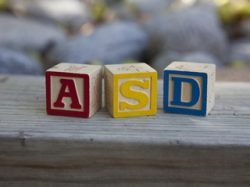“Ask Cathy… An Open Dialogue with a Mother and Special Needs Architect”
Q: Do you personally believe it is dangerous to teach our kids how to make fire or cook with gas? Do I need to worry about putting in a new gas stove?
A: Yes, I believe it is dangerous to teach our children to do anything that can cause a life-threatening event. I believe they struggle with judging what is right and wrong and they don’t always know what is inherently dangerous. This is compounded by the fact that they frequently perseverate over things they find fascinating. Fire can be one of these fascinations. I would strongly recommend not having a gas stove in your home or even having free access to matches or other fire starting elements.
Q: I have a child who thinks things are funny when he gets in trouble and makes these shrill noises. Can you tell me what to do to get my son to stop?
A: Fundamentally, I would guess that your son’s response is nervous energy about his knowledge that he has done something wrong. My son always got very nervous and his response was to lose control. He would then start laughing uncontrollably. No matter how upset I became at him, he continued, if not increased, his inappropriate response to the situation. What I found was that when my son got into trouble, he had no successful coping skills to get out of the situation he had created. So, his natural reaction was to act silly. If I gave him an audience, he got even more hyper and goofy. If I took away his audience by sending him to his room or leaving the room myself, he could regain control relatively quickly. I would recommend that you try removing your- self from the environment so that your son does not in any way see you. He will likely stop his sounds more quickly.
Q: With everything you know, what would you change for our kids?
A: For me, that is easy to answer. This comes from personal experience. I would want funding and support for our kids to cross state lines. Under the current system, each state manages its own funding for education, programs and services for individuals with disabilities. When my son was in his last year of school, he had two best friends from adjacent states that were funded to his school. When all three young adults graduated, each had to return to his home state—Maryland, Virginia and New Jersey—to receive adult services. These three best friends had to be broken apart—and this is only because individuals with disabilities receive funding and sup- port solely in their home state.
If the perfect opportunity for us exists in another state, we move. If we meet our future spouse in another state, we move. If our kids with special needs are in the same situation, they can’t move unless they want to lose all services they are receiving in their home state and start all over at the bottom of the list in another state. Why is it that the elderly can use Medicare to receive residential support wherever they chose to live yet individuals with disabilities can’t move across their state line? Moreover, why is it that the elderly can live together in a congregate assisted living home with Medicare funding but our special children can’t live together by choice with their friends without the setting being called institutional? In my opinion, this is basically a violation of their civil rights.
READ WEB VERSION Found in Autism File Magazine, Issue 73, April-May 2017



